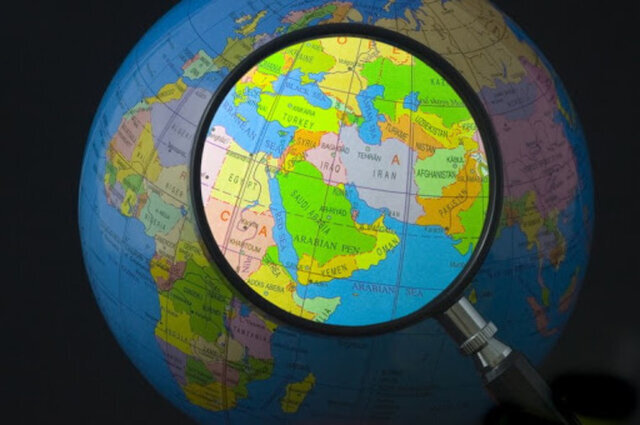Iran moves past dichotomy between JCPOA and neighborly ties

TEHRAN – In what appears to constitute the main feature of the Raisi administration’s foreign policy, a senior Iranian diplomat has said that Tehran is no longer constrained by indirect talks with the U.S. in expanding relations with neighboring countries.
The diplomat, Nasser Kanaani, who is the spokesman for the Iranian foreign ministry, said Iran’s neighborly policy is not contingent on the 2015 Iran nuclear deal, thus debunking a longstanding perception that establishing good neighborly ties with countries in the West Asia region hinges on the nuclear deal, formally called the Joint Comprehensive Plan of Action (JCPOA).
“False dichotomy between JCPOA (of which Iran, unlike US, remains a party) & good ties between Iran & its neighbors, inc. Russia, doesn't hide the fact that indecision of the unfaithful US is the main hurdle for a deal,” Kanaani said on Twitter. “Our neighborly policy is not contingent on JCPOA or US permission.”
This runs counter to what has long been promoted by some pundits, some of whom were close to the Rouhani administration. These pundits have posited that reviving and strengthening the JCPOA is the key to fostering ties with some influential countries in the region, such as Saudi Arabia and the United Arab Emirates (JCPOA).
Former Iranian nuclear negotiator Seyed Hossein Mousavian seems to be an opponent of the forgoing perception. After lead negotiators of Iran and the U.S., Ali Bagheri Kani and Rob Malley, headed to Doha for a new round of talks, Mousavian signaled the Doha talks prompted Saudi Arabia to voice readiness for the resumption of the Baghdad talks. “The fate of Iran-Saudi negotiations hinges on the final status of the JCPOA,” he said on Twitter on June 27.
But the Raisi administration has shown that Iran can boost its ties with countries in the region without putting all its eggs in the JCPOA’s basket. President Raisi has traveled to Oman and Qatar. He just hosted a regional summit in Tehran that was attended by the presidents of Turkey and Russia.
Kuwait and the UAE are planning to upgrade their ties with Iran to the ambassadorial level. Iranian Foreign Minister Hossein Amir Abdollahian announced on Thursday that these countries’ new ambassadors will arrive in Tehran soon. He also said that Saudi Arabia has sent a message through Iraq that it’s ready to move its talks with Iran to the political level, up from the current security one. “Last week, we received a message from the Iraqi foreign minister that the Saudi side is ready for talks to be moved from the security phase to the political one. And we declared that we are ready for talks to be continued at the political level and they should result in the restoration of diplomatic relations in the previous form,” he stated.
The Iranian foreign minister spoke over the phone with Iraqi Foreign Minister Fuad Hossein two times in recent weeks. In a July 18 conversation, Amir Abdollahian and Hussein discussed some issues of common concern in bilateral relations, as well as some regional issues, including talks between Tehran and Riyadh.
Hussein referred to Iraq’s participation in the recent Jeddah Summit and shared his assessment of the meeting with Amir Abdollahian.
Fuad Hussein asserted that the Iraqi government has held the required talks and consultations for regional cooperation at the Jeddah summit and that his country would continue its efforts to strengthen peace and stability in the region.
Amir Abdollahian appreciated Iraq’s constructive efforts and role in the formation and advancement of regional dialogues to strengthen the stability, security and development in the region and emphasized Iran’s readiness to continue consultations and exchange ideas with Iraq in order to pursue issues of common interest in bilateral and regional dimensions.
Leave a Comment